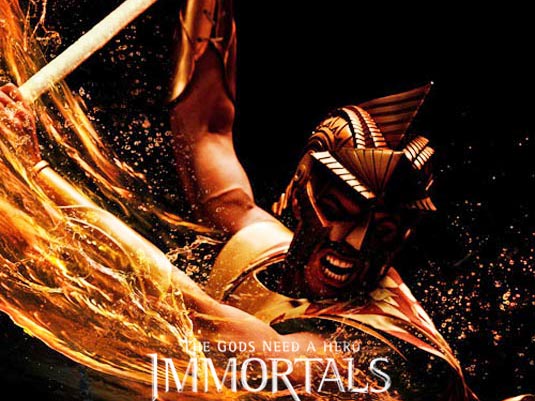I was going to post my most favorite and least favorite movies of 2011 this week. But I just finished reading Conn Iggulden’s GATES OF ROME, and it got me thinking, and pissed off.
What’s with all the homophobia in ancient world historical fiction and its close companion heroic fantasy?
Let me be clear about what I mean. It’s not that having a homophobic character, or depicting a homophobic scenario, is always a bad thing. It very well may be realistic for the character or the time period.
Contrary to romantic notions about ancient Greece or ancient Rome being a bastions of homosexual freedom, the status of homosexuals was more complex. While society was free of the religious persecution of the Christian era, and the criminal persecution of later eras, there are records of condemning male effeminacy and sexual submissiveness in public speeches and theatre. Sometimes they appear as light-hearted jabs questioning a man’s true manhood. Sometimes they were more severe and scandalous.
To portray gay characters in ancient times, authors ought to take into account the nuance and paradox of the times. It is reasonable to depict, for instance, the unique social pressures affecting a gay character, and his struggle to reconcile a masculine ideal with his sexual and emotional realities.
But, you can write about homophobia without contributing to it.
One dimension of homophobia—not limited to ancient world/heroic fantasy—is the exclusion of gay and lesbian characters. Gay men and lesbians have existed forever, but how often are they portrayed in ancient world stories? How often are they the hero of an epic journey?
When gay/lesbian characters do appear, too often they’re killed off as a device. Homer may have been the first author to use the trope “bury your gays.” Remember the death of Achilles’ lover Patroclus in THE ILIAD?
Gays also come to bitter ends in Conn Iggulden’s GATES OF ROME, Nick Drake’s NEFERTITI and Ursula Le Guin’s LAVINIA.
“Bury your gays” is really bad, but I find what’s worse is the stereotypical and negative treatment of gay characters.
In David Gemmel’s LORD OF THE SILVER BOW, the one lesbian character Andromache “grows out of” her lesbianism when she meets the hetero hero Helikaon.
In Nick Drake’s NEFERTITI, the one gay character Ay is a secretive, scheming puppetmaster. The one lesbian character is a basket case who unknowingly and tragically abets the murder of her lover.
Conn Iggulden’s GATES OF ROME is an interesting study in homophobia. The one gay character is a dandified soldier, who is in love with the Consul and Military General Sulla. Iggulden names the gay soldier Padacus – a conscious or unconscious play on ‘paidaika,’ a pejorative for gay in ancient Greece. Sulla fears Padacus has become too emotionally attached, and will go into a jealous rage when he’s spurned in favor of a pair of female prostitutes. Thus, Sulla decides his only option is to have Padacus killed. Here we have the “gay basket case” trope and “bury you gays” all in one.
I’m not saying that every gay character should be likable and have a happy ending. But when there’s zero likability and zero happy endings, you have to wonder: why the bias from all these authors?
Even Ursula Le Guin, who has been credited with promoting good female portrayals in male-dominated fantasy/sci fi, manages to jump on the gay-hating bandwagon with her ancient Roman retold legend LAVINIA. Her token gay character Prince Turnus is an insecure buffoon who is out to prove he isn’t gay, while everyone knows he is. Of course he meets a violent death at the hands of Aeneas, the hetero hero of the story.
Maybe Le Guin felt her rendering of Turnus demonstrates a point about prevailing sexist and heterosexist attitudes. But the portrayal would have worked better if there were other sympathetic gay characters in the story. As it is, Turnus’ death comes off as a righteous fact-of-life. He is only seen through the judgmental eyes of the heroine Lavinia, who is presented as a reliable and otherwise sympathetic storyteller.
Author/producer Perry Moore went on a crusade to change the superhero genre. I’m feeling there’s a similar need with ancient world historical fiction. “Ask yourself: Equal Rights?” was a slogan Moore used to insert in comics on post-it notes. We need equal rights for gays in the ancient world. We need more gay and lesbian heroes.




